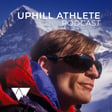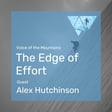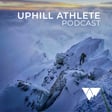
Talking Health, Performance, and Longevity, with Jesse Charles, M.D.
Scott Johnston is joined by Doctor Jesse Charles, M.D. Jesse is a rural medical doctor and longtime adherent to the Uphill Athlete training methods. As a general practitioner in a rural setting, Jesse sees a wide variety of patients, from those at peak health, to the infirm. In this episode, Scott and Jesse discuss changes that take place as the result of regular exercise; exercise as a ‘phase change’ in the functioning of the body; how exercise facilitates learning; responses of the heart to exercise; nervous system changes and loss of motor units through time; the importance of balance practices in aging populations; the evolution of mitochondria; gut bacteria as a health indicator throughout life; dietary considerations for gut health; training progressions and adaptations for increasing vitality; and thoughts on arthritis prevention.
References:
Exercise promotes the expression of brain derived neurotrophic factor (BDNF) through the action of the ketone body β-hydroxybutyrate
https://elifesciences.org/articles/15092
Molecular Choreography of Acute Exercise
https://pubmed.ncbi.nlm.nih.gov/32470399/
Hyperglycaemia is associated with impaired muscle signalling and aerobic adaptation to exercise
https://www.nature.com/articles/s42255-020-0240-7
Physical activity offsets genetic risk for incident depression assessed via electronic health records in a biobank cohort study
https://onlinelibrary.wiley.com/doi/abs/10.1002/da.22967
MAP training: combining meditation and aerobic exercise reduces depression and rumination while enhancing synchronized brain activity
https://www.nature.com/articles/tp2015225
Exercise Alters Gut Microbiota Composition and Function in Lean and Obese Humans
https://pubmed.ncbi.nlm.nih.gov/29166320/
Meta-omics analysis of elite athletes identifies a performance-enhancing microbe that functions via lactate metabolism
https://www.nature.com/articles/s41591-019-0485-4
Blood factors transfer beneficial effects of exercise on neurogenesis and cognition to the aged brain
https://science.sciencemag.org/content/369/6500/167
Studies of a targeted risk reduction intervention through defined exercise (STRRIDE)
https://pubmed.ncbi.nlm.nih.gov/11581566/
BDNF polymorphism predicts the rate of decline in skilled task performance and hippocampal volume in healthy individuals
https://www.nature.com/articles/tp201147
Is Your Blood Sugar Undermining Your Workouts?
https://www.nytimes.com/2020/07/29/well/move/blood-sugar-diet-foods-workouts-exercise-muscles.html
Fiber-Mediated Nourishment of Gut Microbiota Protects against Diet-Induced Obesity by Restoring IL-22-Mediated Colonic Health
https://www.cell.com/cell-host-microbe/fulltext/S1931-3128(17)30497-3
Association Between Dietary Fiber and Lower Risk of All-Cause Mortality: A Meta-Analysis of Cohort Studies.
https://academic.oup.com/aje/article/181/2/83/2739206



















